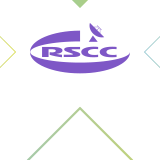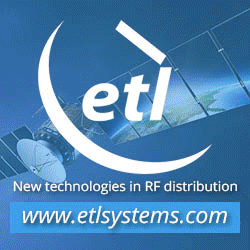Lynk Files for FCC
License to Enable Global Mobile Connectivity
May 25, 2021
Lynk Global Inc., has filed
for a commercial operator's license with the
Federal Communications Commission (FCC).
Commercial service is expected to begin around
the world starting next year upon FCC approval.
The startup's patented technology will
eventually allow anyone with an existing cell
phone to stay connected, anywhere in the world,
at all times. Most importantly, Lynk's system
requires no changes to the phone. The existing
phone in your pocket will work.
Charles Miller, CEO of
Lynk, "Lynk is introducing a brand-new,
never-been-done-before
service—satellite-direct-to-standard-phones. As
an American company, we are fortunate to have
the FCC, whose process is trusted by officials
around the world, to license our satellites. We
believe that being good corporate citizens means
at every point in the process you must be
rigorous—whether it is eliminating harmful
interference or minimizing orbital debris.
Because using cellular frequencies from space
has never been done before, we believe that
being licensed by the FCC will help regulators
worldwide embrace this groundbreaking
technology."
Lynk’s initial commercial
license application intentionally uses the FCC's
new streamlined process for up to 10 small
satellites to accelerate the license. Previous
applications suggest this streamlined process
will take 10-12 months, allowing Lynk to begin
global service next year. This is the first step
in Lynk's plans for a larger constellation that
will grow to several thousand satellites to
begin continuous global service in 2025.
Ultimately, Lynk's full
constellation will reach 5,000 satellites to
provide broadband speeds to your phone. Using a
low-risk development approach, Lynk will
integrate some of the most advanced space
sustainability methods today to prevent and
mitigate orbital debris and is actively
advocating within industry and government to
develop stronger orbital debris mitigation
approaches for tomorrow.
In February 2020, with the
help of NASA and mobile network operators (MNO),
Lynk sent the world's first text message from a
satellite in orbit to a standard mobile phone on
the ground. Lynk has also signed contracts with
the U.S. Air Force and the U.K. Space Agency to
support development of the Lynk system.
To date, Lynk has signed
dozens of testing agreements with MNOs. Miller
noted, "There is a huge amount of interest in
Lynk's service … we actually have too many
testing partners at this time. To manage this
demand and ensure the highest quality testing
protocols and commercial service, we are
implementing a "Flagship Carrier" program. Under
this program, we will be limiting initial
commercial services to, at most, a dozen mobile
network operators globally."
In partnership with mobile
network operators, Lynk will provide a global
service for the 5.2 billion existing cell phone
users globally. Further, many of the 2.5 billion
people currently without phones will be
connected to global society and economy,
materially improving their lives. Lynk will
provide an instantaneous backup emergency
communications layer everywhere on Earth.
We have seen cellular
systems destroyed worldwide due to hurricanes,
earthquakes, wildfires, and terrorism. Lynk will
enable people to receive emergency alerts and
contact 911 for help even when the ground
network is not operating. Emergency responders
will benefit from increased resiliency to
coordinate their efforts, saving lives
everywhere.











